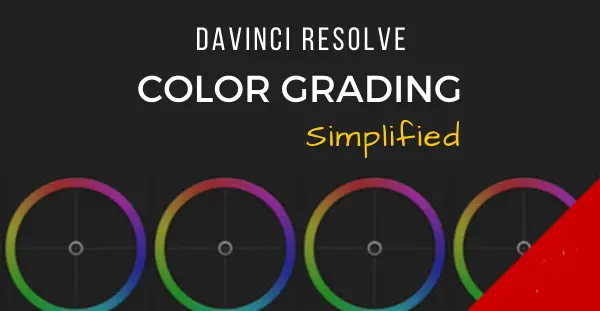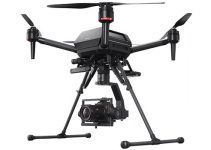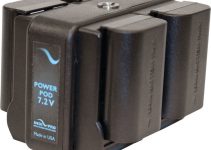If you recall last week, Kinefinity Europe announced that the dedicated free transcoding software KineStation, which comes with the 6K KineMax and 4K KineMINI cameras, already officially supports Apple ProRes. This means that now Kinefinity users can effortlessly transcode the proprietary compressed raw format Kineraw to different ProRes flavours using the KineStation. In addition, the european distributor for Kinefinity HDVideoShop Berlin recently released a video in which they compare the different resolutions the flagship KineMAX camera is capable of – 6K, 4K, 3K, and 2K.
For those unfamiliar with the KineMAX specs see them below:
|
From the video test above we can see that the pixel density in 6K and 4K is technically the same, the only difference in image size being the crop factor – in 6K it is Super 35, and in 4K it is more akin to Micro 4/3 or 2x compared to Full-frame 35mm. 3K and 2K are different stories here as they are derived from the 6K and 4K images via pixel binning and line-skipping – a method that generates moire and aliasing and is less preferable to a full readout with a crop.
In addition acquiring in 4K and then scaling the image in post to 2K will produce a better image than acquiring 2K native in-camera due to the pixel binning which occurs at 2K resolution, as opposed to the full readout at 4K.
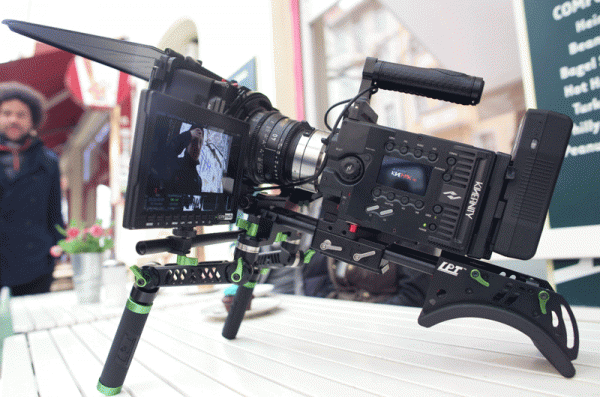
Image by HDVideoShop Berlin
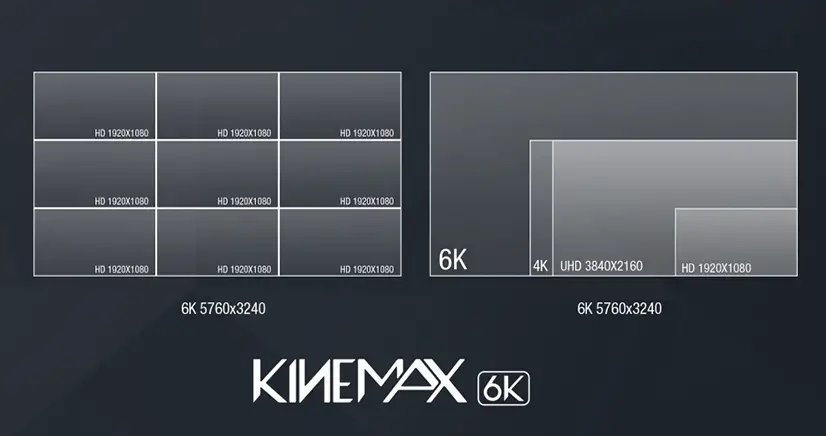
Features
- S35 CMOS Sensor 5760 x 3240
- 16 stops Dynamic range (at 3K resolutions)
- 14 stops DR at 4K
- 100fps at 4K resolution
- Micro 4/3 crop and S16mm crop with up to 100fps at 2K; 3K at 60fps; 4K at 50fps.
- Sports mode – reduces rolling shutter in 4K/3K/2K/1080p
- HD-SDI out x 2; HDMI out x 2
- CinemaDNG Raw and Cineform Raw in camera
- Uncompressed CinemaDNG 6K to Two KineMAG
- Compressed Cineform raw to One KineMAG
- 3rd-party LUT upload to camera support, live view with custom LUT
- KineAudio, Dual XLR recording is now available
- HiSpeed option: 4K@100fps and 2K@150fps with full sensor read-out
All in all, from the tests I’ve seen I find the Kinefinity KineMAX camera to produce very nice footage and a serious “bang-for-the-buck” savings compared to other alternatives like the RED Epic for example if you want to shoot 6K that is. Tom Antos reviewed the KineMAX here, check it out if you haven’t already.
Disclaimer: As an Amazon Associate partner and participant in B&H and Adorama Affiliate programmes, we earn a small comission from each purchase made through the affiliate links listed above at no additional cost to you.
Claim your copy of DAVINCI RESOLVE - SIMPLIFIED COURSE. Get Instant Access!
